Have you ever heard of a co-parenting app and its functions? I’d like to assume this is self-explanatory, but we shall delve into the subject nonetheless.
The rate of divorce and separation of families is on the high side. That is why co-parenting apps have been designed to help both parents keep tabs on their children.
Before we go into details, let’s quickly understand what co-parenting apps are.
A co-parenting app is a computer application created to help separated parents run the affairs of their children jointly.
Co-parenting is the process whereby two parents, separated, no longer live together or divorced, work together to raise their child.
This means that parents in this situation jointly share legal, physical, and emotional custody of the child.
Let’s go through the benefits of Co-parenting apps.
Benefits of Co-parenting Apps
The list below are some recognized benefits linked with using co-parenting apps:
Creates Room for Both Parents’ Involvement
Co-parenting apps involve parents in their children’s well-being and development.
This can help the child not feel the negative impact of their parent’s separation or divorce.
So whether the parents live together romantically or not, they are both actively involved in their child’s life.
It Encourages Communication
Communication is vital to a child’s upbringing, and this app fosters communication.
For co-parenting to be accomplished, both parties must have a reasonable exchange of dialogue, which this app encourages.
It Keeps Things Orderly
Co-parenting apps help to organize what needs to be presented to the other parent.
These apps help to manage information such as:
- Medical records
- Permission slips
- Insurance information
- Christmas and birthday wishlists and much more
The app also helps remind parents of special dates and events that must be attended.
6 helpful co-parenting apps to utilize
Separation or divorce is never an exciting experience, and if not handled appropriately, it might have a very negative impact on the lives of a child.
This is why co-parenting apps are developed to reduce the effect of separation or divorce.
The following are 6 well-known co-parenting apps to consider:
1. WeParent
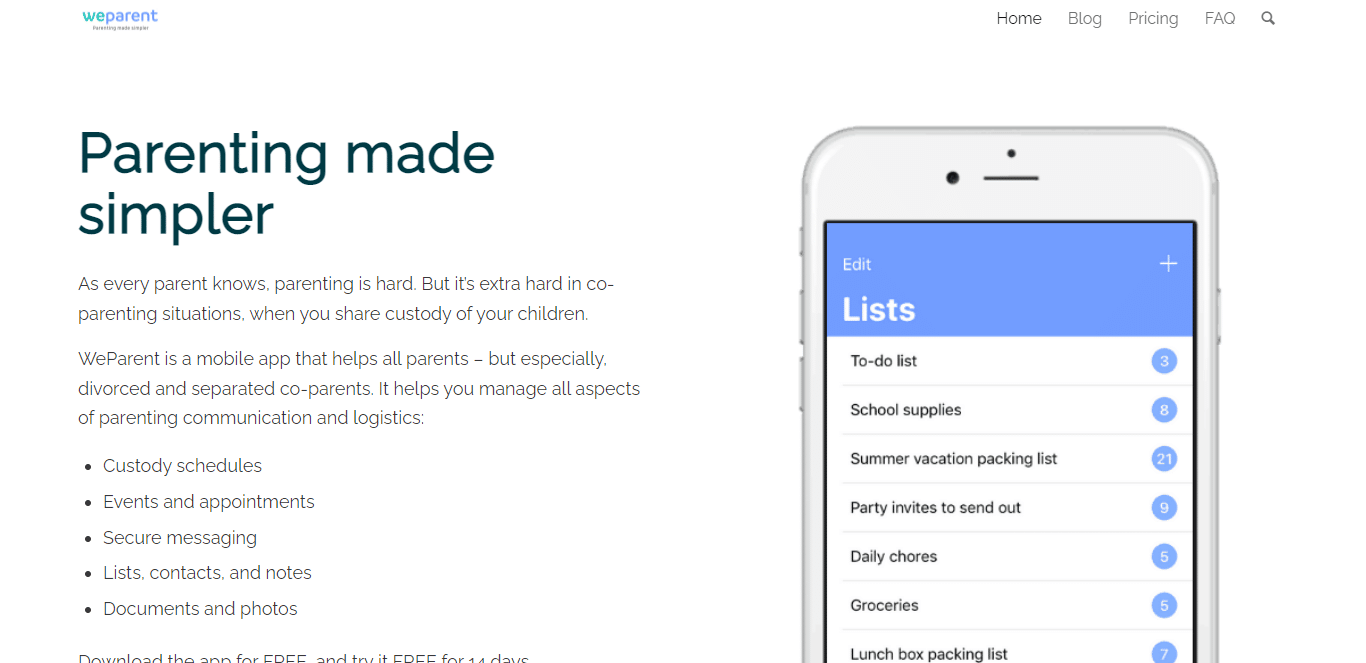
This app is created to share files and secure communications among family members.
WeParents provides users with options for both one-on-one and group communication.
This way, emphasis can be laid on the most critical issues in raising a healthy and happy child.
2. OurFamilyWizard
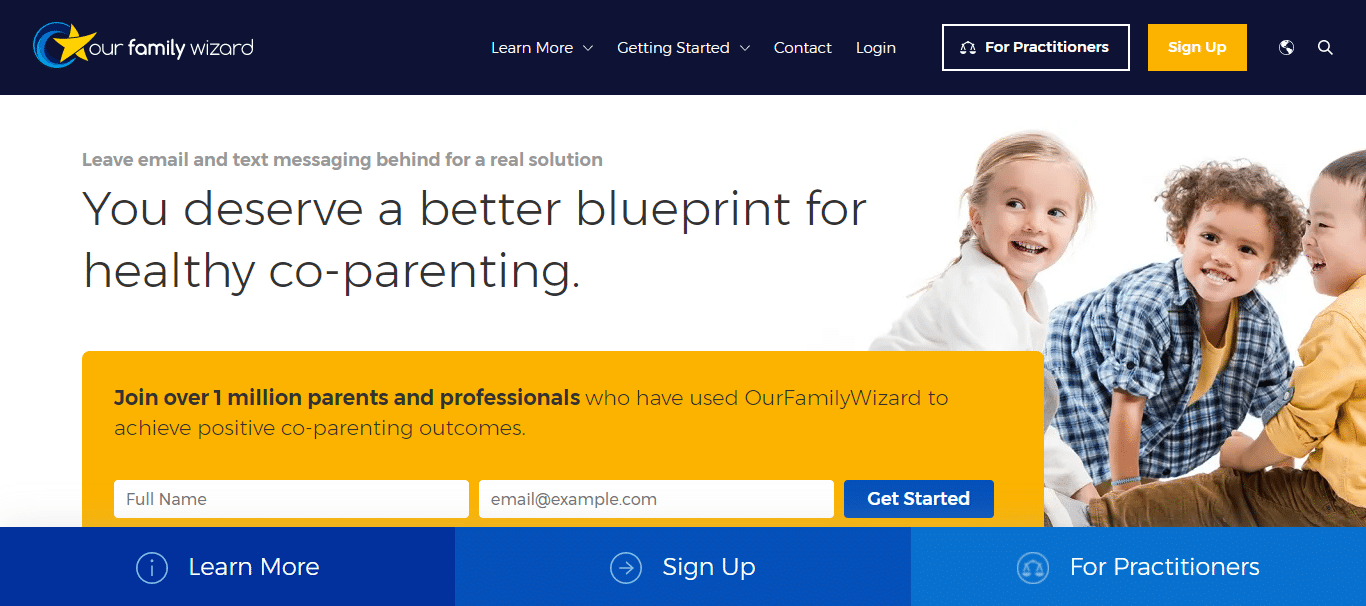
This app has a particular function of scheduling, communicating, tracking, and sharing files.
OurFamilyWizard also allows you to add extended family members and family therapists who have control over their access levels.
3. 2Houses
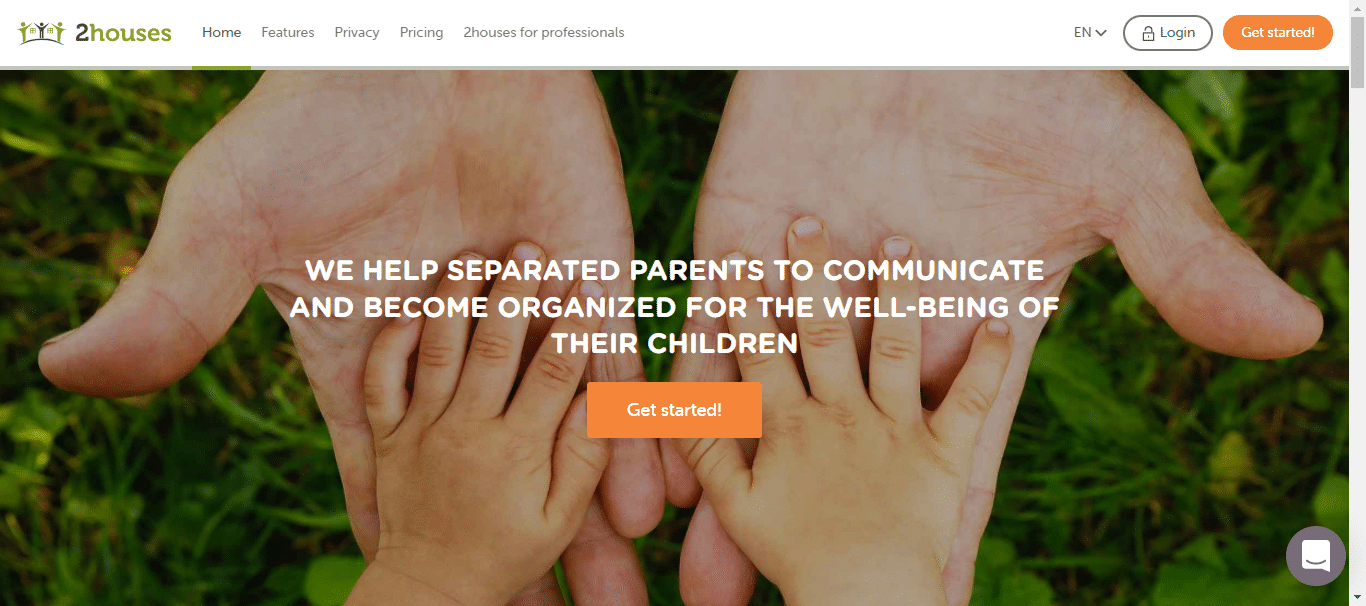
This particular computer application helps each partner track expenses, share journals, and share pictures of the children.
In addition, 2Houses includes sections for organizing essential child information, medical information, and critical contacts to help both parties maintain their child properly.
4. coParenter
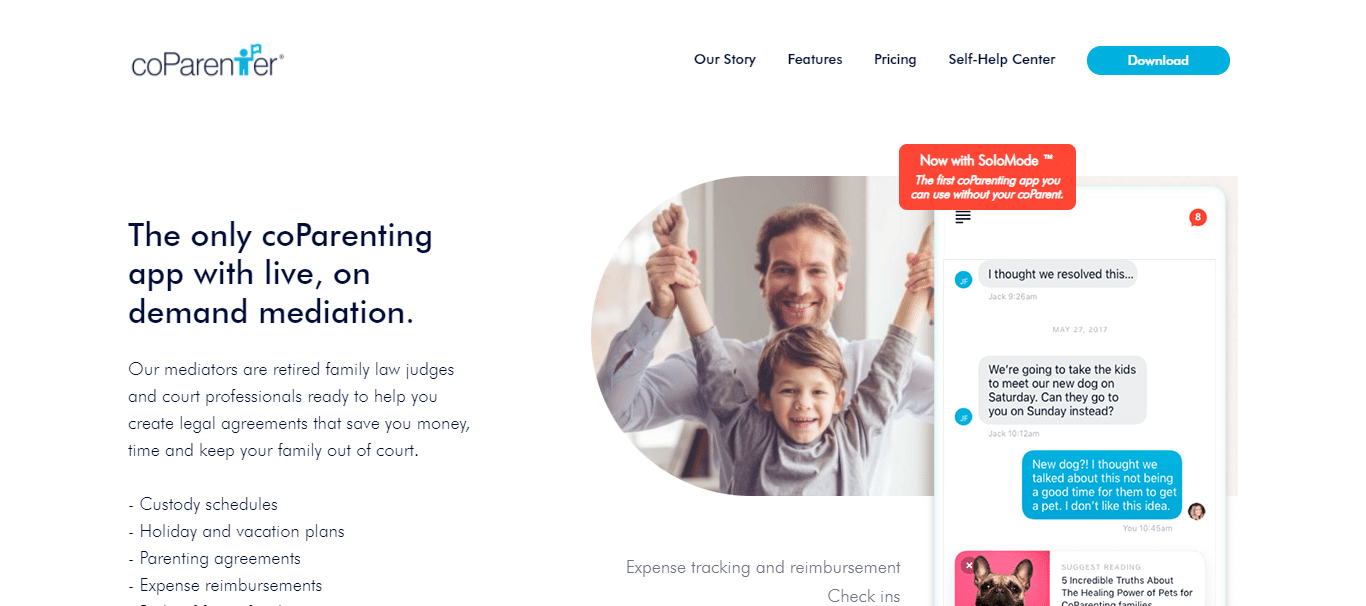
If you need an outsider to get involved in your separated family affairs, coParenter is the app for you.
This app has a great feature that includes parenting coaching, negotiation services, and specific agreements.
5. Cozi
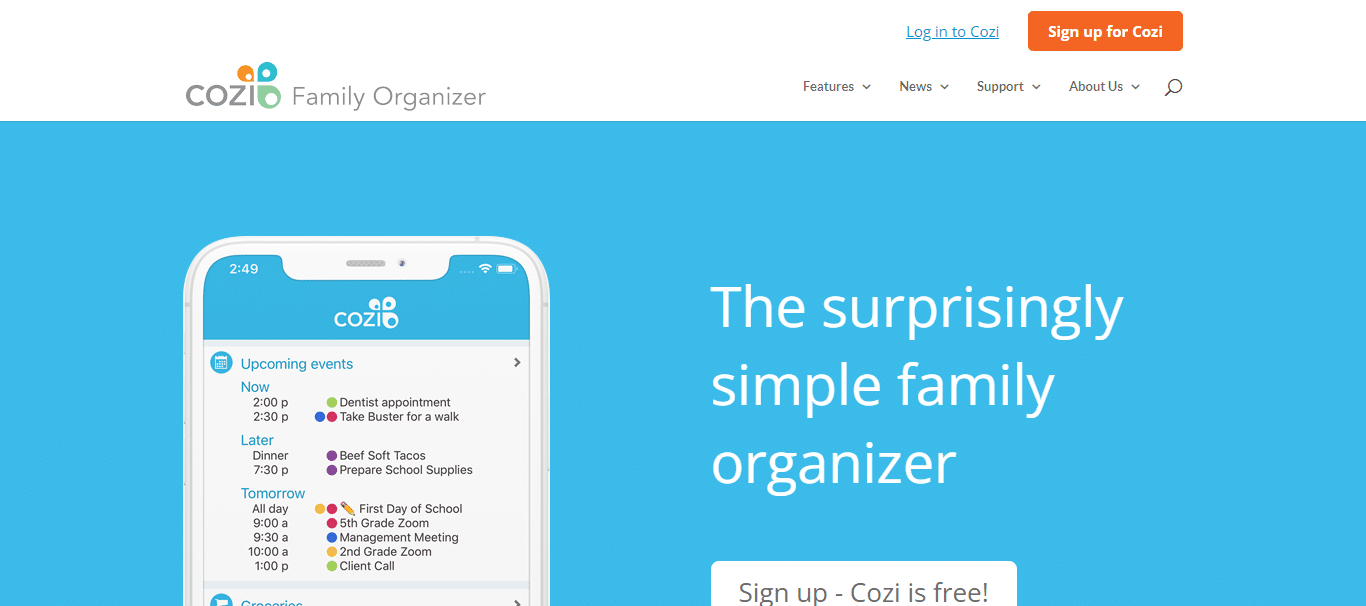
Cozi is an app designed to organize families. Though not explicitly created for separated parents, it is helpful.
Its significant features for co-parenting are shared calendars and a to-do list. The exciting part about this is that it is free.
6. Custody Connection
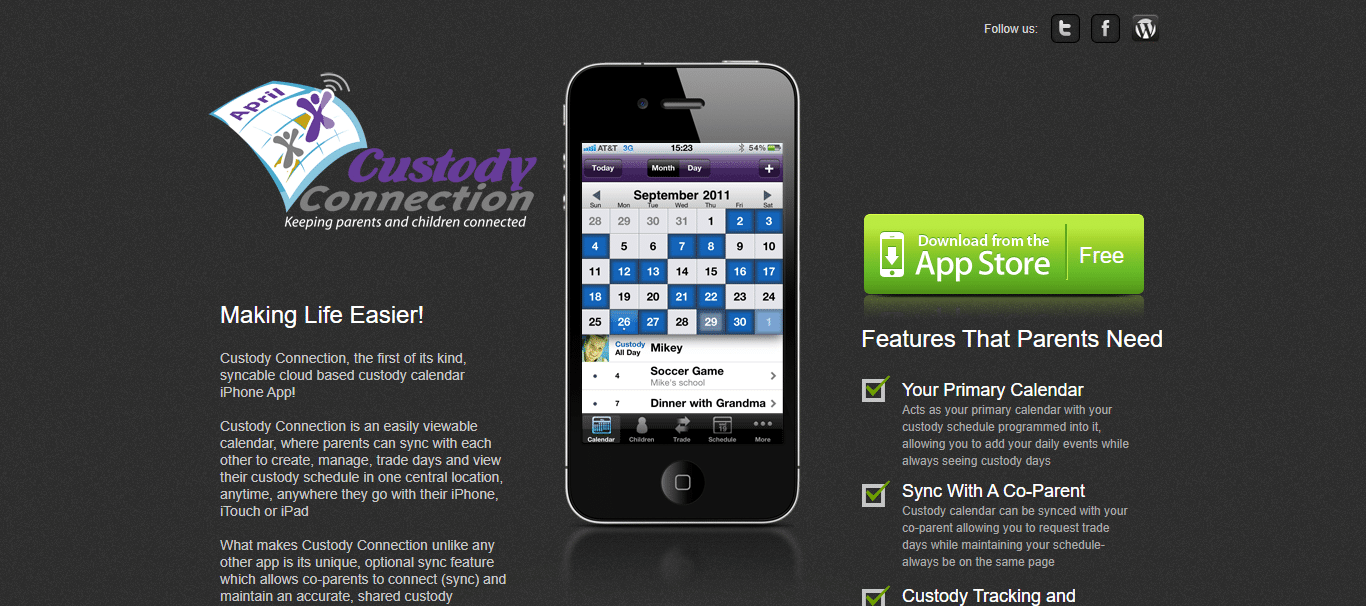
This effective co-parenting app is explicitly designed to regulate parenting plans. It is also a free app.
Custody Connection is a nifty app that creates a customized schedule so you know which parent the child will spend time with.
Before considering using the Co-parenting app, some questions need to be answered.
Questions to Ask Yourself Before Deciding on a Co-parenting App
- Are You Collaborating With Family Law Attorneys?
If you’ve been ordered to have court-monitored interaction, it’s clear that choosing a platform with easy expert access is the best option.
Professional access can help even families who will be interacting without the presence of a judge.
If you’re going through a divorce, you’ll almost certainly be working with a family law attorney.
Many parents will collaborate with professionals, such as divorce coaches, mediators, attorneys, and parenting coordinators.
Regardless of the makeup of your team, every parent should want to avoid the situation of scrambling to deliver complete and relevant records to their family law practitioners.
Professional access to child custody apps eliminates this burden, allowing experts to acquire the material they need when they need it.
Professional access can supply more than simply records and reports. An unbiased or collaborative professional, like a parenting coordinator, may be actively involved in assisting you in establishing a healthy co-parenting relationship.
A co-parenting platform designed for their involvement allows impartial professionals to enter parenting schedules, events, spending details, and more.
The most crucial aspect of professional participation is that the co-parenting app distinguishes between your personal and business activities.
Systems that require you to disclose your login credentials with family law practitioners will never produce detailed records of parental activities.
- How Did You Communicate When You Were Together With Your Partner?
Recognizing the habits you and your co-parent developed while you were together may help you identify areas where you may require additional assistance in the future.
For instance, who, between you and your partner, participated more in getting the kids to where they had to? If the person was you, you should seek a system that significantly emphasizes scheduling following your divorce or separation.
What about child-related costs and expenses? If you and your co-parent are already on the same page regarding paying bills on time, the co-parenting software you choose may not require substantial features in this area.
The finest co-parenting application for your family may need to provide a proper framework for those interactions if expenditures are a source of uncertainty and last-minute payments.
- Did Your Divorce News Result in Conflict?
One of the most difficult adjustments for parents following a divorce is from a high-conflict separation to co-parenting.
If you and your co-parent were fortunate enough to have an amicable divorce, though it may still be difficult, your journey into co-parenting will be smoother.
However, if you had a high-conflict divorce or if conflicts and communication problems marked the end of your marriage, your initial co-parenting efforts will require more help and structure.
In those situations, email, messages, and phone conversations are improper.
While these are all excellent for amicable communication, they lack sufficient safeguards against disputes and misunderstandings.
If you’re rocking this boat, you’d have to search for a co-parenting app that encourages accountability while preventing records from being manipulated, fabricated, or deleted.
To see if an app has these protections, reach out to the company’s customer support and observe how they respond to the following questions:
- Is it possible for parents to alter or erase each other’s entries?
- Is it possible for parents to access information from a previous period? Can a parent, for example, fabricate a previous event and make it appear as if they disclosed that data with their co-parent in advance?
- Are there any log-in records that are easily accessible?
- Is it possible for parents to change or remove their children’s communication histories?
- When a parent views a message, are the first-viewed times recorded?
Aside from answering these questions, approaching an app’s customer support service and seeing how soon you get a response is another solid sign of whether it’ll be a good fit.
Any system will take some getting accustomed to, and it may be beneficial to have the help of a proactive and skilled team.
- What is Your Daily Schedule Like?
If your family’s routine was already hectic before the divorce, it’ll be even more so now that you’re parenting from two homes.
In this situation, parents need co-parenting software with a synchronized calendaring system.
Irrespective of your children’s activities, your co-parenting software should make it simple to follow and comprehend your parenting routine.
It should also include tools for planning exceptions to your parenting routine.
Families with exceptionally hectic schedules or parental schedules that vary frequently will want additional support systems to help keep everyone on the same page.
It helps to go for a co-parenting app with detailed event templates as a starting point.
Exchanging information with your co-parent will ensure you and your co-parent provide all relevant details.
This eliminates the need for parents to have lengthy chats to bring a third party up to speed.
You’ll also need an app to easily handle one-time deviations to your otherwise consistent routine.
When time adjustment requests are not handled properly, they can be a major source of tension for parents. Look for apps that structure and document your requests adequately.
- What is Your Parenting Plan’s Communication Policy?
After their divorce, many couples will have a commonly agreed parenting plan to govern their interactions.
Other families may be required by the court to handle their post-divorce parenting in a specific way.
Whatever your circumstances, it’s critical to comprehend the agreements and rules that will influence your choices.
If you’ve been instructed to have court-monitored interaction, the judge in charge of your case will likely give you detailed guidance on which child custody app to use.
Using a platform that enables professional access is a requirement in cases where they leave that decision to parents but still request that court employees review communication.
Professional access eliminates the need for parents to copy and forward reports and the risk of revealing their login details, which is never a smart idea.
Other components of your parenting plan may assist you in selecting the finest co-parenting software.
For example, you might want to see if your parenting plan contains a clear guideline for handling requests for parenting time modifications.
Many parenting programs impose timeframes for handling requests and other restrictions, such as restricting the number of requests you can make in a given time.
Parenting programs should also include guidelines for sharing information about children, which can greatly impact which co-parenting app is suitable for your family.
How far ahead do you need to convey information about an event or an appointment? Is it necessary for you to react to expenditure requests within a specified amount of time?
If your communication has extremely tight deadlines, choose co-parenting software that provides precise records of when entries were generated, changed, or responded to.
This data helps parents avoid disagreements that develop when they recollect what happened and when they differ.
After you’ve answered these five questions, you should know what kind of co-parenting app is best for you.
Give yourself time to master the basics and acclimate to the improvements it will bring to your communication, no matter which app you use.
Errors are expected, but with time and effort, they should be minimal.
Before using anything, you want to determine if they have any setbacks.
You might want to draw your interest if its disadvantages outweigh the positives.
In the case of co-parenting apps, there are just a few negligible setbacks.
Advantages of co-parenting apps
- When utilized correctly, co-parenting apps can assist recently divorced parents in exploring the challenges of co-parenting. For example, one recently released software allows users to follow each other’s activities and interactions, which can help guarantee that the parties stick to their parenting schedules and communicate peacefully.
- Co-parenting applications frequently give parents access to critical custody-related documents, including parenting plan agreements.
- Properly applying these types of co-parenting apps has also demonstrated efficacy in limiting the number of conflicts and time in the courtroom. The apps encourage parents to work out minor disagreements among themselves, enabling courts to concentrate on the health and safety of the affected child.
Disadvantages of Co-parenting Apps
- Co-parenting apps may give legal practitioners unrestricted access to the parties’ communications and whereabouts.
- The co-parents are put in a difficult position to pay for using the app’s services.
When co-parenting, a well-set plan must be in place for the smooth running of the process.
Co-parenting Plan
This is a strategic method of setting out important details relating to the co-parent.
It should be able to touch the following aspects:
- Children’s education
- Holidays and special events
- Visitation schedule
- Guidelines on decision-making
- Financial obligations
- Kids’ medical needs





